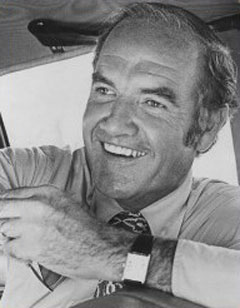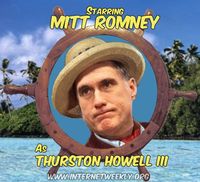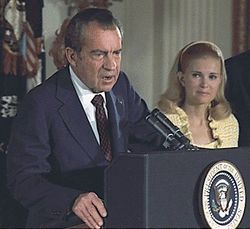Think of this as Volume 16, Number 7 of A-Clue.com, the online newsletter I've written since 1997. Enjoy.
That's what was famously said of O.J. Simpson after his acquittal (he eventually became violent again and is now in jail in Nevada). It meant they went so far in trying to convict a man they knew was guilty that they gave his friends a way to claim he wasn't.
The same may have been true of Richard Nixon.
Nixon was guilty. Yes, he became an enemy of democracy. Yes, he set up the plumbers and all the rest of it. Yes, he tried to cover up Watergate.
But in their zeal to convict him, humiliate him, throw him in jail, Americans also went too far. They mistakenly conflated what he believed with who he was. When Nixon came down, liberals thought his politics came down with him. They didn't. And, after Carter, liberals spent a generation in the desert paying for that mistaken assumption.
 This is a great example of how the present can inform the past. We're playing the 1972 game in our politics right now. While voters are, by and large, leaning away from conservatism, as an -ism, or a combination of -isms, just as they leaned against the New Deal in 1972, because we'd been there, we'd done that, it hadn't worked and wasn't about to, the tribes of the conservative movement have chosen this point to make their maximalist demands.
This is a great example of how the present can inform the past. We're playing the 1972 game in our politics right now. While voters are, by and large, leaning away from conservatism, as an -ism, or a combination of -isms, just as they leaned against the New Deal in 1972, because we'd been there, we'd done that, it hadn't worked and wasn't about to, the tribes of the conservative movement have chosen this point to make their maximalist demands.
-
Social conservatives are demanding an end to contraception, even while people become more accepting of gay marriage.
-
Foreign policy conservatives demand an attack on Iran, even while most people have finally figured out the classic mistake – “never get involved in a land war in Asia.”
-
Economic conservatives want tax rates of zero, or all tax to be paid on sales, just as people are seeing that a progressive tax system isn't such a bad thing.
-
Libertarians are the dirty hippies of the GOP. They agree in general with the direction of the party, but want to take all the party's ideology to its logical extreme of no government.
This is reflected in the Republican final four, a social conservative (Santorum), a foreign policy conservative (Gingrich) and an economic conservative (Romney), plus an old hippie (Paul). It's not a question of who's McGovern and who's Muskie, but what kind of McGovern you want to run against the New Nixon (Obama).

But for loyalists a second term for Barack Obama is an abomination. Much as a second Reagan term was in 1984. I well remember walking to my local train station on election day that year, seeing someone come down the escalator dressed as a weeping Founding Father, then seeing the head come off to reveal a middle aged woman who, seeing all eyes on her, gave an open-fisted salute and then sat down in utter dejection. This was hours before the first votes were to be counted, but everyone knew, and if you were on the left, it was devastating.
I felt the same way in 2000. My depression started weeks before election day. I had a premonition this would all end in tears, as it did, and that America would pay in blood for the sins of hubris, which we did.
But that won't keep Republicans from doing all they can. It won't stop the billionaires from funneling money even after it's proven counter-productive. It won't stop governors from trying to deny people the vote even when it just gets voters mad. It won't stop Republican leaders from making maximalist demands even when they see they're holding a pair of 4s against a full House.
We are, all of us, prisoners of history. Knowing the future doesn't mean you can change it. Which may be why this ongoing book-length work has not drawn much of an audience. Because what's the moral?
It is that America is not a center-left or a center-right country, but a centrist country. That the center moves slowly. That it responds to economic change. That the business of America is business.

Every kid who studied American history with half an ear in high school knows the pattern. That the Civil War was followed by a golden age of manufacturing and financial manipulation. That the progressive era became a golden age of reform and regulation. That the New Deal fed demand through deficits. And that the Nixon era, in the end, was followed by Hollywood's domination of our politics and Silicon Valley's domination of our economy.
If pollsters were wise they would ask Americans what kinds of economic changes they foresee. The answer would be loud and clear. A War Against Oil. We enlist when we get smaller cars, when we insulate our homes and office buildings, when we put solar panels on our homes. We are looking for abundance, as we've always done. The story of America is a search for abundance.
And that search will go on.










